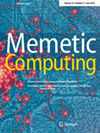
- 數據庫收錄SCIE
- 創刊年份2009年
- 年發文量17
- H-index26
Memetic Computing
期刊中文名:模因計算ISSN:1865-9284E-ISSN:1865-9292
該雜志國際簡稱:MEMET COMPUT,是由出版商Springer Berlin Heidelberg出版的一本致力于發布計算機科學研究新成果的的專業學術期刊。該雜志以COMPUTER SCIENCE, ARTIFICIAL INTELLIGENCE研究為重點,主要發表刊登有創見的學術論文文章、行業最新科研成果,扼要報道階段性研究成果和重要研究工作的最新進展,選載對學科發展起指導作用的綜述與專論,促進學術發展,為廣大讀者服務。該刊是一本國際優秀雜志,在國際上有很高的學術影響力。
雜志介紹
Memetic Computing雜志介紹
《Memetic Computing》是一本以English為主的未開放獲取國際優秀期刊,中文名稱模因計算,本刊主要出版、報道計算機科學-COMPUTER SCIENCE, ARTIFICIAL INTELLIGENCE領域的研究動態以及在該領域取得的各方面的經驗和科研成果,介紹該領域有關本專業的最新進展,探討行業發展的思路和方法,以促進學術信息交流,提高行業發展。該刊已被國際權威數據庫SCIE收錄,為該領域相關學科的發展起到了良好的推動作用,也得到了本專業人員的廣泛認可。該刊最新影響因子為3.3,最新CiteScore 指數為6.8。
本刊近期中國學者發表的論文主要有:
-
An intelligent scheduling algorithm for complex manufacturing system simulation with frequent synchronizations in a cloud environment
Author: Feng Yao, Yiping Yao, Lining Xing, Huangke Chen, Zhongwei Lin, Tianlin Li
-
Mathematical modeling and a discrete artificial bee colony algorithm for the welding shop scheduling problem
Author: Xinyu Li, Shengqiang Xiao, Cuiyu Wang, Jin Yi
-
Project portfolio selection and scheduling under a fuzzy environment
Author: Xiaoxiong Zhang, Keith W. Hipel, Yuejin Tan
-
A multi-level knee point based multi-objective evolutionary algorithm for AUC maximization
Author: Jianfeng Qiu, Minghui Liu, Lei Zhang, Wei Li, Fan Cheng
英文介紹
Memetic Computing雜志英文介紹
Memes have been defined as basic units of transferrable information that reside in the brain and are propagated across populations through the process of imitation. From an algorithmic point of view, memes have come to be regarded as building-blocks of prior knowledge, expressed in arbitrary computational representations (e.g., local search heuristics, fuzzy rules, neural models, etc.), that have been acquired through experience by a human or machine, and can be imitated (i.e., reused) across problems.
The Memetic Computing journal welcomes papers incorporating the aforementioned socio-cultural notion of memes into artificial systems, with particular emphasis on enhancing the efficacy of computational and artificial intelligence techniques for search, optimization, and machine learning through explicit prior knowledge incorporation. The goal of the journal is to thus be an outlet for high quality theoretical and applied research on hybrid, knowledge-driven computational approaches that may be characterized under any of the following categories of memetics:
Type 1: General-purpose algorithms integrated with human-crafted heuristics that capture some form of prior domain knowledge; e.g., traditional memetic algorithms hybridizing evolutionary global search with a problem-specific local search.
Type 2: Algorithms with the ability to automatically select, adapt, and reuse the most appropriate heuristics from a diverse pool of available choices; e.g., learning a mapping between global search operators and multiple local search schemes, given an optimization problem at hand.
Type 3: Algorithms that autonomously learn with experience, adaptively reusing data and/or machine learning models drawn from related problems as prior knowledge in new target tasks of interest; examples include, but are not limited to, transfer learning and optimization, multi-task learning and optimization, or any other multi-X evolutionary learning and optimization methodologies.
中科院SCI分區
Memetic Computing雜志中科院分區信息
| 2023年12月升級版 |
綜述:否
TOP期刊:否
大類:計算機科學 2區
小類:
COMPUTER SCIENCE, ARTIFICIAL INTELLIGENCE OPERATIONS RESEARCH & MANAGEMENT SCIENCE |
| 2022年12月升級版 |
綜述:否
TOP期刊:否
大類:計算機科學 3區
小類:
COMPUTER SCIENCE, ARTIFICIAL INTELLIGENCE OPERATIONS RESEARCH & MANAGEMENT SCIENCE |
| 2021年12月舊的升級版 |
綜述:否
TOP期刊:否
大類:計算機科學 3區
小類:
COMPUTER SCIENCE, ARTIFICIAL INTELLIGENCE OPERATIONS RESEARCH & MANAGEMENT SCIENCE |
| 2021年12月基礎版 |
綜述:否
TOP期刊:否
大類:工程技術 2區
小類:
COMPUTER SCIENCE, ARTIFICIAL INTELLIGENCE OPERATIONS RESEARCH & MANAGEMENT SCIENCE |
| 2021年12月升級版 |
綜述:否
TOP期刊:否
大類:計算機科學 3區
小類:
COMPUTER SCIENCE, ARTIFICIAL INTELLIGENCE OPERATIONS RESEARCH & MANAGEMENT SCIENCE |
| 2020年12月舊的升級版 |
綜述:否
TOP期刊:否
大類:計算機科學 3區
小類:
OPERATIONS RESEARCH & MANAGEMENT SCIENCE COMPUTER SCIENCE, ARTIFICIAL INTELLIGENCE |
中科院SCI分區:是中國科學院文獻情報中心科學計量中心的科學研究成果。期刊分區表自2004年開始發布,延續至今;2019年推出升級版,實現基礎版、升級版并存過渡,2022年只發布升級版,期刊分區表數據每年底發布。 中科院分區為4個區。中科院分區采用刊物前3年影響因子平均值進行分區,即前5%為該類1區,6%~20%為2區、21%~50%為3區,其余的為4區。1區和2區雜志很少,雜志質量相對也高,基本都是本領域的頂級期刊。
JCR分區(2023-2024年最新版)
Memetic Computing雜志 JCR分區信息
| 按JIF指標學科分區 |
學科:COMPUTER SCIENCE, ARTIFICIAL INTELLIGENCE
收錄子集:SCIE
分區:Q2
排名:82 / 197
百分位:
58.6% 學科:OPERATIONS RESEARCH & MANAGEMENT SCIENCE
收錄子集:SCIE
分區:Q2
排名:32 / 106
百分位:
70.3% |
| 按JCI指標學科分區 |
學科:COMPUTER SCIENCE, ARTIFICIAL INTELLIGENCE
收錄子集:SCIE
分區:Q2
排名:86 / 198
百分位:
56.82% 學科:OPERATIONS RESEARCH & MANAGEMENT SCIENCE
收錄子集:SCIE
分區:Q2
排名:38 / 106
百分位:
64.62% |
JCR分區:JCR分區來自科睿唯安公司,JCR是一個獨特的多學科期刊評價工具,為唯一提供基于引文數據的統計信息的期刊評價資源。每年發布的JCR分區,設置了254個具體學科。JCR分區根據每個學科分類按照期刊當年的影響因子高低將期刊平均分為4個區,分別為Q1、Q2、Q3和Q4,各占25%。JCR分區中期刊的數量是均勻分為四個部分的。
CiteScore 評價數據(2024年最新版)
Memetic Computing雜志CiteScore 評價數據
- CiteScore 值:6.8
- SJR:0.945
- SNIP:1.1
| 學科類別 | 分區 | 排名 | 百分位 |
| 大類:Mathematics 小類:Control and Optimization | Q1 | 14 / 130 |
89% |
| 大類:Mathematics 小類:General Computer Science | Q1 | 41 / 232 |
82% |
歷年影響因子和期刊自引率
投稿經驗
Memetic Computing雜志投稿經驗
該雜志是一本國際優秀雜志,在國際上有較高的學術影響力,行業關注度很高,已被國際權威數據庫SCIE收錄,該雜志在COMPUTER SCIENCE, ARTIFICIAL INTELLIGENCE綜合專業領域專業度認可很高,對稿件內容的創新性和學術性要求很高,作為一本國際優秀雜志,一般投稿過審時間都較長,投稿過審時間平均 ,如果想投稿該刊要做好時間安排。版面費不祥。該雜志近兩年未被列入預警名單,建議您投稿。如您想了解更多投稿政策及投稿方案,請咨詢客服。
免責聲明
若用戶需要出版服務,請聯系出版商:TIERGARTENSTRASSE 17, HEIDELBERG, GERMANY, D-69121。
同大類學科相關期刊
-
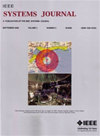
Ieee Systems Journal
COMPUTER SCIENCE, INFORMATION SYSTEMS
中科院 3區
-
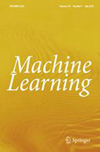
Machine Learning
COMPUTER SCIENCE, ARTIFICIAL INTELLIGENCE
中科院 3區
-
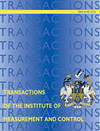
Transactions Of The Institute Of Measurement And Control
AUTOMATION & CONTROL SYSTEMS
中科院 4區
-
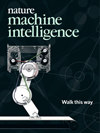
Nature Machine Intelligence
COMPUTER SCIENCE, ARTIFICIAL INTELLIGENCE
中科院 1區
-
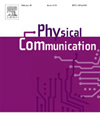
Physical Communication
ENGINEERING, ELECTRICAL & ELECTRONIC
中科院 4區
-
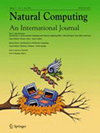
Natural Computing
COMPUTER SCIENCE, ARTIFICIAL INTELLIGENCE
中科院 4區
-

Ieee Access
ENGINEERING, ELECTRICAL & ELECTRONIC
中科院 3區
-
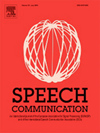
Speech Communication
ACOUSTICS
中科院 3區
相關期刊